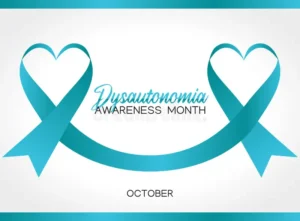The Struggle of Living with an Autonomic Nervous System Disease
By: Amy Diana Ramirez
Denver, Colorado (The Hollywood Times) 10/9/24 – With a vibrant personality and a graduate degree from Columbia University, Jaejin Kim could not have foreseen the harrowing life to come. First, she took on the responsibility of caring for each of her declining parents, until their painful deaths occurred, due to dementia. Before much emotional healing had taken place for Jaejin came two car collisions, in quick succession. Because of the accidents, Kim’s own health status would take a turn for the far worse.
The first car collision that Jaejin fell victim to resulted in massive soft tissue damage to her spinal column in addition to a concussion. Less than a month later, the concussion would be exponentially compounded by the second collision before the first concussion could heal completely. Back-to-back concussions tend to be catastrophic and often result in death. Instead, Kim survived, only to endure Second Concussion Syndrome. Her body was immediately thrown into early menopause, which is much harsher than natural menopause, involving intense hot flashes that would melt makeup right off her face. She also began experiencing excruciating migraines, including those with auras. She experienced a number of visual disturbances that would be worsened by what is known as a hemiplegic migraine. Lesions were left on her brain from such an extreme migraine. Visual issues that emerged include defective stereopsis (not using one’s eyes in unison). She also noticed damage to her auditory system, resulting in partial deafness requiring the use of hearing aids for social interactions, including over the telephone.
Her symptoms included an unusual variability in blood pressure, heart palpitations, and shortness of breath. Her case also came with dysphagia (difficulty swallowing), chronic fatigue syndrome, and debilitating cognitive dysfunction, which all pointed to autonomic system failures brought on by the extensive damage done to her brain. After consulting with several physicians regarding these life-altering medical concerns, an “umbrella” diagnosis was determined: Severe Dysautonomia. [Insert Photo of Ribboned Sign, Credit: Dysautonomia International]
Dysautonomia is the term given for the dysregulation of the Autonomic Nervous System (ANS). This system carries out essential functions that one engages in without conscious thought (involuntary functions), regulating bodily fluids such as perspiration plus respiration, heart rate, sleep processes, and digestion.
When one’s ANS doesn’t function properly, a spectrum of symptoms emerges, from the inconvenient to the severe and even life-threatening. As is the case with Kim, patients may have an overwhelming number of symptoms.
Because Dysautonomia can affect several neural pathways, symptoms vary widely; some may come and go, some may happen daily, and some may dissipate, permanently. Unfortunately, Kim has suffered from virtually every symptom listed with the description of the disease and has received no relief.
Twenty Signs and Symptoms of Dysautonomia:
- Brain fog (trouble concentrating and retaining information)
- Gastrointestinal issues (constipation, diarrhea, acid reflux, and more)
- Fatigue
- A hard time standing for long periods
- Lightheadedness and feeling as if one is about to faint (as well as actual fainting episodes), dizziness, vertigo, weakness (due to a drop in blood pressure upon standing)
- Heart palpitations or irregular heartbeat
- Change in perspiration: either too much sweat, too little, or none when the body needs it
- Headaches, including migraines of varying types
- Urinary symptoms, such as frequent urination, excessive nighttime urination, urgency incontinence, and retention of urine
- Sexual problems, such as erectile dysfunction, vaginal dryness, and lack of libido
- Sensitivity to light and other visual disturbances such as blurred or dimmed vision and a lack of stereopsis (certain aspects an be reversed with vision therapy)
- Auditory system damage (irreversible)
- Shortness of breath/ Dyspnea
- Chest pain or discomfort
- Low blood sugar
- Exercise Intolerance
- Trouble swallowing (Dysphagia), choking, and aspirating fluids into the lungs can cause a life-threatening infection (Pneumonia).
- Compromised immune system
- Dermatologic manifestations such as rashes
- Mood Swings (not surprisingly considering all else going on)
 Some of these symptoms can be controlled by medication, various therapies, and some can be improved by lifestyle modifications, but there is no cure for the disease at present, and it tends to be progressive.
Some of these symptoms can be controlled by medication, various therapies, and some can be improved by lifestyle modifications, but there is no cure for the disease at present, and it tends to be progressive.
What causes Dysautonomia is not always as clear cut as it is in Kim’s s case; it was Second Concussion Syndrome (two concussions with the second one occurring before recovery from the first one was complete) that triggered her Dysautonomia.
Many times, another condition causes or happens along with Dysautonomia. These include:
- Diabetes and prediabetes
- Neurodegenerative diseases such as Parkinson’s disease, Alzheimer’s, and Multiple Sclerosis
- Alcohol abuse
- Infections like Lyme disease, HIV, and botulism
- Physical Trauma (eg concussion)
- Genetic (Familial Dysautonomia)
- Celiac disease
- Surgery involving general anesthesia
- Autoimmune disorders, such as rheumatoid arthritis, lupus, Sjogren’s syndrome, Crohn’s disease, Guillain-Barre syndrome, and myasthenia gravis
- Ehlers-Danlos syndrome, a genetic disorder that affects the body’s connective tissue
- infections, including HIV, Lyme disease, and tetanus and Long COVID
October is traditionally recognized as Breast Cancer Awareness Month, but this far lesser-known disease is also recognized in October. Since 2012, Dysautonomia International spearheaded Dysautonomia Awareness Month to advance education, increase research, and encourage advocacy. Increasing global awareness may promote a higher quality of life and enhanced health outcomes for people diagnosed with Dysautonomia.
There are fifteen designated types of Dysautonomia. One of the most common subtypes is Postural Orthostatic Tachycardia Syndrome (POTS). As many as 3 million were diagnosed with POTS in 2023. POTS organizations have designated October 25 as POTS Awareness Day, during Dysautonomia Awareness Month. POTS is more common in females. TV personality and author Bethenny Frenkel has POTS. Award-winning vocalist Billie Eilish has also shared her POTS diagnosis, among other complex health conditions that she navigates including Tourette’s Syndrome and Hypermobility.

It has been written that actress Christina Applegate’s daughter has also been stricken with POTS. Jaejin Kim was also given the POTS diagnosis, though her POTS case is mild when compared to her overarching Dysautonomia symptoms. POTS tends to cause a spike in heart rate when one rises from sitting to a standing position. Other signs and symptoms of POTS include hypotension (low blood pressure), dizziness, occasional fainting, nausea fatigue, cognitive dysfunction, tremor, headaches, an inability to exercise, and shivering or sweating when unwarranted, and sometimes seizures. Younger patients tend to fare best. Depending on the patient’s surrounding health status, POTS does not typically result in death and should not reduce a person’s life expectancy. However, POTS can lower a person’s quality of life significantly.
While some Dysautonomia patients continue with work, school, and engage in social activities, patients like Kim cannot, and may never be able to function well, even with treatment. Some do improve over time by managing their symptoms and/or by miraculously recovering from the illness. Remission is always possible. However, many patients remain ill indefinitely, and some worsen with age. The latter seems to be the unfortunate case for Kim.
Because physicians are not routinely trained to diagnose and treat complex nervous system disorders, Dysautonomia patients tend to experience years of diagnostic delays or even multiple misdiagnoses before being appropriately diagnosed. [Five years of such frustration is common.] It is exceedingly difficult for Dysautonomia patients to find physicians within reach who treat the condition. Kim is looking into treatment locations far from Denver (Vanderbilt in Nashville; the Mayo Clinic in Arizona) so she can finally be under proper care.
Since the financial toxicity of Dysautonomia has bankrupted Kim (and countless others), her best friends have created a GoFundMe campaign for her recovery.
PLEASE SUPPORT JAEJIN KIM’s JOURNEY TO FUNCTIONALITY: https://gofund.me/cdcf1282
In Jaejin’s own words, when asked to describe the hardest part of living with Dysautonomia:
“The hardest part of living with severe dysautonomia is that it doesn’t go away. When you are sick with a cold or flu, oftentimes you know that there is going to be an end in sight which is comforting. That’s not the case with severe dysautonomia. While some days are better than others, every day is uniquely challenging because I don’t know what new issue is going to crop up since my entire autonomic system is dysregulated. Automatic functions that are normally taken for granted are part of my everyday consciousness such as breathing, swallowing and digesting. I struggle to breathe most days, and that can induce panic attacks especially when my throat has also tightened. That is further worsened if I have GI upset with severe bloating which crowds my lungs. Dysautonomia is most often invisible and misunderstood. It is debilitating and isolating. I am in constant pain from daily migraines, severely fatigued and frequently nauseated, dizzy, anxious and uncomfortable. Until recently, when I suffered extensive nerve damage to my eyes, face and brain from a severe hemiplegic migraine, my illness was invisible. Most people assume you are fine because your appearance may suggest that you are okay when there is so much going on below the surface.”. -Jaejin Kim, October 5, 2024
Kim’s quality of life would be unbearably lower if it weren’t for Piper, her canine companion, and for the soothing encouragement of certain songs. Kim mentioned a song she loves by Lauren Daigle titled ‘Rescue’. Daigle herself has endured migraine headaches, panic attacks, and an immune system so compromised that it required isolation for a couple of years.

Rescue by Lauren Daigle:
You are not hidden
There’s never been a moment
You were forgotten
You are not hopeless
Though you have been broken
Your innocence stolen
[Pre-Chorus 1]I hear you whisper underneath your breath
I hear your SOS, your SOS
[Chorus 1]
I will send out an army
To find you in the middle of the darkest night, it’s true
I will rescue you
[Verse 2]
There is no distance
That cannot be covered
Over and over
You’re not defenseless
I’ll be your shelter
I’ll be your armor
[Pre-Chorus 1]
I hear you whisper underneath your breath
I hear your SOS, your SOS
Official Music Video: https://youtu.be/gYR0xP1j4PY?si=x8cnZOTeLjZg3gnS

The song lyrics promise that an army will be sent out to save the listener in their darkest hour. This Go Fund Me campaign seeks to reach members of this army, capable of rescuing Kim from the abyss, promoting her healing, and immediately restoring hope.







